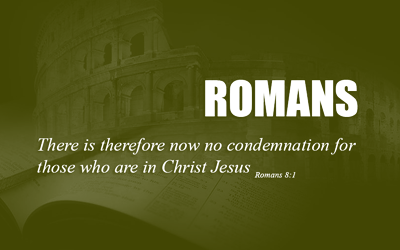Romans 9:9-29
God’s calling vs human efforts. God’s sovereignty. My thoughts are not your thoughts.
(Bấm vào đây để đọc tiếng Việt)
GOD’S CALLING vs. HUMAN EFFORTS
 "9 For this is what the promise declared: "About a year from now I will return and Sarah will have a son." 10 Not only that, but when Rebekah had conceived children by one man, our ancestor Isaac - 11 even before they were born or had done anything good or bad (so that God's purpose in election would stand, not by works but by his calling) - 12 it was said to her, "The older will serve the younger," 13 just as it is written: "Jacob I loved, but Esau I hated."
"9 For this is what the promise declared: "About a year from now I will return and Sarah will have a son." 10 Not only that, but when Rebekah had conceived children by one man, our ancestor Isaac - 11 even before they were born or had done anything good or bad (so that God's purpose in election would stand, not by works but by his calling) - 12 it was said to her, "The older will serve the younger," 13 just as it is written: "Jacob I loved, but Esau I hated."
14 What shall we say then? Is there injustice with God? Absolutely not! 15 For he says to Moses: "I will have mercy on whom I have mercy, and I will have compassion on whom I have compassion." 16 So then, it does not depend on human desire or exertion, but on God who shows mercy." (Romans 9:9-16)
God had already devised a plan for Jacob and Esau “before they were born or had done anything good or bad.” The crucial idea to understand here is the notion of “before.” Prior to either of them being able to engage in virtuous actions that would lead God to regard them favorably, or commit wrongdoing that would warrant divine punishment, God had already set a plan in motion for them.
Nevertheless, an individual may present the argument that God was already aware that Esau would possess qualities despised by Him. However, this line of reasoning contradicts the fundamental belief that everything created by God is inherently good. As seen after the creation of Adam and Eve, God declared it to be good. Therefore, it can be inferred that Esau, too, was intricately formed in a manner that evokes awe and wonder, as stated by the psalmist in Psalm 139:13-14.
In my perspective, when God uttered the phrase “Jacob I loved, but Esau I hated,” it can be understood in a similar vein as how Jesus employed parables to communicate profound truths. God characterizes Himself as the embodiment of love, so how can He harbor hatred towards His own creation? Furthermore, throughout our beliefs, it has been ingrained that God detests sins while simultaneously loving the individuals who commit them.
Indeed, God’s supposed hatred towards Esau can only be understood within the framework of our own limited worldview. A parallel can be drawn with the account of the man born blind in John 9, where his contemporaries wrongly assumed that God despised him. Jesus, however, corrected this misconception and revealed the truth. Similarly, in the case of Job, despite the tragedies that unfolded in his life, God did not harbor hatred towards him. Consider also the woman who suffered from an incessant bleeding condition for twelve years until she encountered Jesus. None of these individuals were truly despised by God, yet in the eyes of humanity, they might have been perceived as such.
Through this example, God aims to convey the message that His plan for individuals is not influenced by human desires or efforts, but is instead rooted in His own mercy. As stated in Romans 3:23, all individuals are regarded as equally sinful in God’s eyes. While God’s plan for Esau may appear as though He hates him, the truth of John 3:16 remains unchanged—God loves Esau just as much. The apparent perception of hatred is a revelation of our own wicked thoughts and not a reflection of God’s true nature.
GOD’S SOVEREIGNTY
“17For the scripture says to Pharaoh: “For this very purpose I have raised you up, that I may demonstrate my power in you, and that my name may be proclaimed in all the earth.” 18So then, God has mercy on whom he chooses to have mercy, and he hardens whom he chooses to harden. 19You will say to me then, “Why does he still find fault? For who has ever resisted his will?” 20But who indeed are you - a mere human being - to talk back to God? Does what is molded say to the molder, “Why have you made me like this?” 21Has the potter no right to make from the same lump of clay one vessel for special use and another for ordinary use? 22But what if God, willing to demonstrate his wrath and to make known his power, has endured with much patience the objects of wrath prepared for destruction? 23And what if he is willing to make known the wealth of his glory on the objects of mercy that he has prepared beforehand for glory -“ (Romans 9:17-23)
These verses serve to further elaborate on the preceding verses, confirming God’s sovereignty in His involvement in human affairs. “God has mercy on whom He chooses to have mercy, and He hardens whom He chooses to harden.” From our limited perspective, it may seem that God treats certain individuals unfairly, but we must remember that He is a just God. I dare to believe that God would grant Pharaoh an opportunity to reconcile with Him at some point during his life.
To human eyes, a lump of clay may be perceived as having noble or ordinary use, but in the eyes of God, both hold equal value. Let us avoid the error of judging its worth solely based on earthly standards.
MY THOUGHTS ARE NOT YOUR THOUGHTS
“24 even us, whom he has called, not only from the Jews but also from the Gentiles? 25 As he also says in Hosea: “I will call those who were not my people, ‘My people,’ and I will call her who was unloved, ‘My beloved.’” 26 “And in the very place where it was said to them, ‘You are not my people,’ there they will be called ‘sons of the living God.’” 27 And Isaiah cries out on behalf of Israel, “Though the number of the children of Israel are as the sand of the sea, only the remnant will be saved, 28 for the Lord will execute his sentence on the earth completely and quickly.” 29 Just as Isaiah predicted, “If the Lord of armies had not left us descendants, we would have become like Sodom, and we would have resembled Gomorrah.” (Romans 9:24-29)
Just as the Jewish people hold certain assumptions about the salvation of non-Jews, we, as non-Jews ourselves, may also hold certain assumptions about those who have not yet embraced the faith. The individuals we perceive as “You are not my people” may, one day, be referred to as “sons of the living God.” I believe Paul’s main point is that we cannot predict whom God will choose to save, so it is crucial to always maintain the mindset that people around us, even those we view as adversaries, could potentially be candidates for God’s kingdom.
This perspective will also foster humility within us because without God’s mercy, we would have been similar to Sodom and Gomorrah.
Nghi Nguyen
- Scripture quoted by permission. All scripture quotations, unless otherwise indicated, are taken from the NET Bible® copyright ©1996-2006 by Biblical Studies Press, L.L.C. All rights reserved.
Disclaimer: This is my own opinion on the topic, which does not necessarily reflect the church's theology, or beliefs of the individuals in it — Nghi Nguyen
